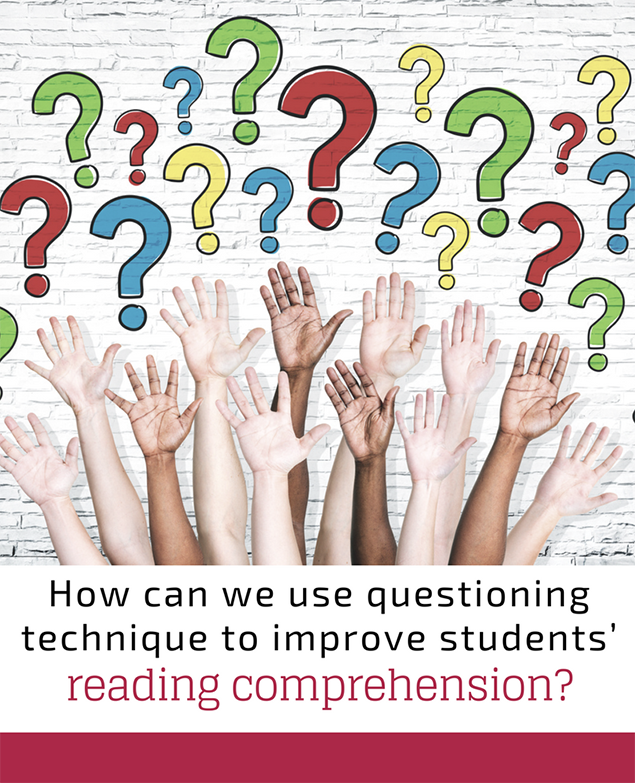Effective Questioning for Reading Comprehension
Posted by Network Support · Leave a Comment
Effective Questioning for Reading Comprehension
Questions are among the fundamental cornerstones of teaching practices. Questions can help:
- Prompt students to critically analyze and reflect upon learning material.
- Teachers review lessons and assess for student learning.
- Engage students in the classroom.
- Enhance student interest and motivation.
There are different types of questions, and it is important to choose and implement the correct questioning techniques to for specific responses from students. Some of these questioning techniques are effective at improving students’ reading comprehension. These include:
Open-Ended Questions:
Teachers can use open ended questions to initiate discussions. These questions can prompt students to:
- Form opinions and support them with textual evidence – Why do you think that character behaved like that?
- Describe and explain information – What are the factors that led to that event?
- Find connections between ideas and concepts – How do you think they influence or affect each other?
- Predict events – What do you think will happen next?
Socratic Questioning:
This method uses student-generated questions to facilitate learning. Student groups can be instructed to read a passage and try to understand the material by asking themselves questions. Initially teachers can assist by giving students a list of questions to follow. With practice, students are taught to generate questions on their own and apply them to improve their understanding of the text.
Probing Questions:
Students can use probing questions to understand topics in-depth, and to clarify information. For instance, a question like, “what exactly do you think the author meant by that line?” can encourage students to read between the lines of text to find further answers
Leading Questions
As the name suggests, leading questions lead students to specific ideas to find the correct answers. Teachers can lead students using:
- Assumptions: Do you think the author meant it in this way?
- Choices: Which of these factors do you think influenced the event the most?
- Personalizing questions: I think the character chose to respond in a that manner because [of these reasons]. What do you think?
Teachers can use these questions interchangeably depending on the direction of discussion and learning objectives. Other points that contribute to effective questioning are the use of:
- Pauses: An adequate waiting time must be given after each question to give students time to think and formulate their answers.
- Tone and body language.
These are a few ways to increase comprehension and get discussions started through questioning techniques. Effective questioning plants the ideas that can guide students through reading materials more easily and with heightened understanding of the content.
Like this article for teachers?
Browse the Professional Learning Board COURSE CATALOG to find related online courses for teachers in your state. Professional Learning Board is a leading provider of online professional development classes that teachers use to renew a teaching license or renew a teaching certificate.





